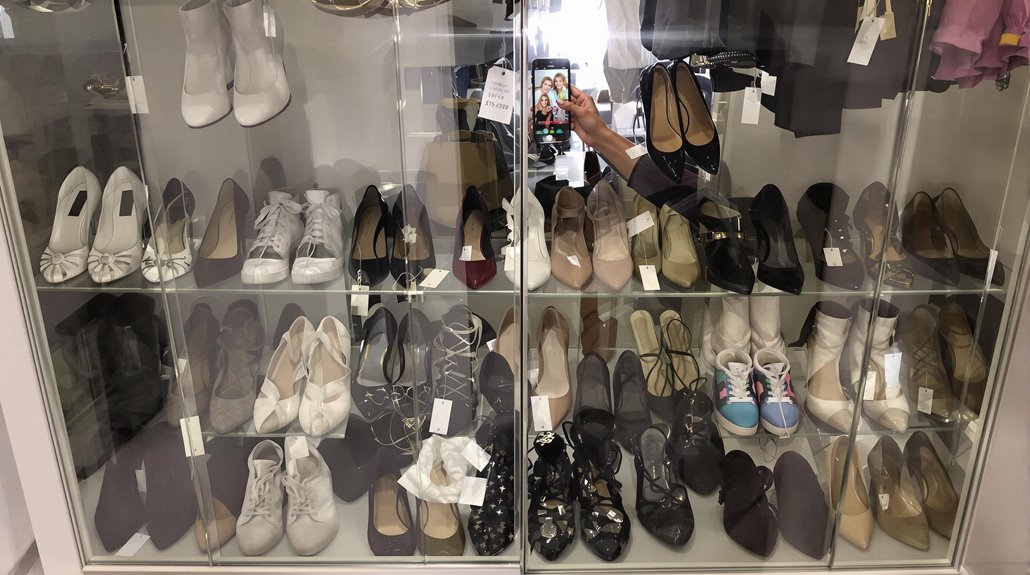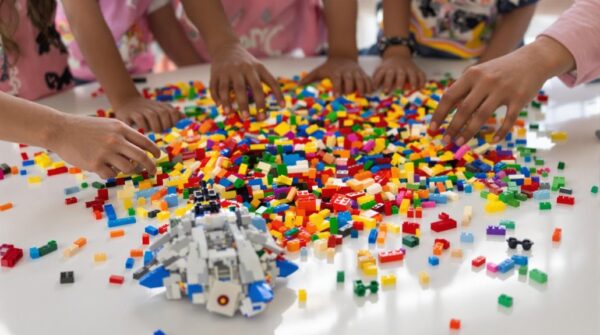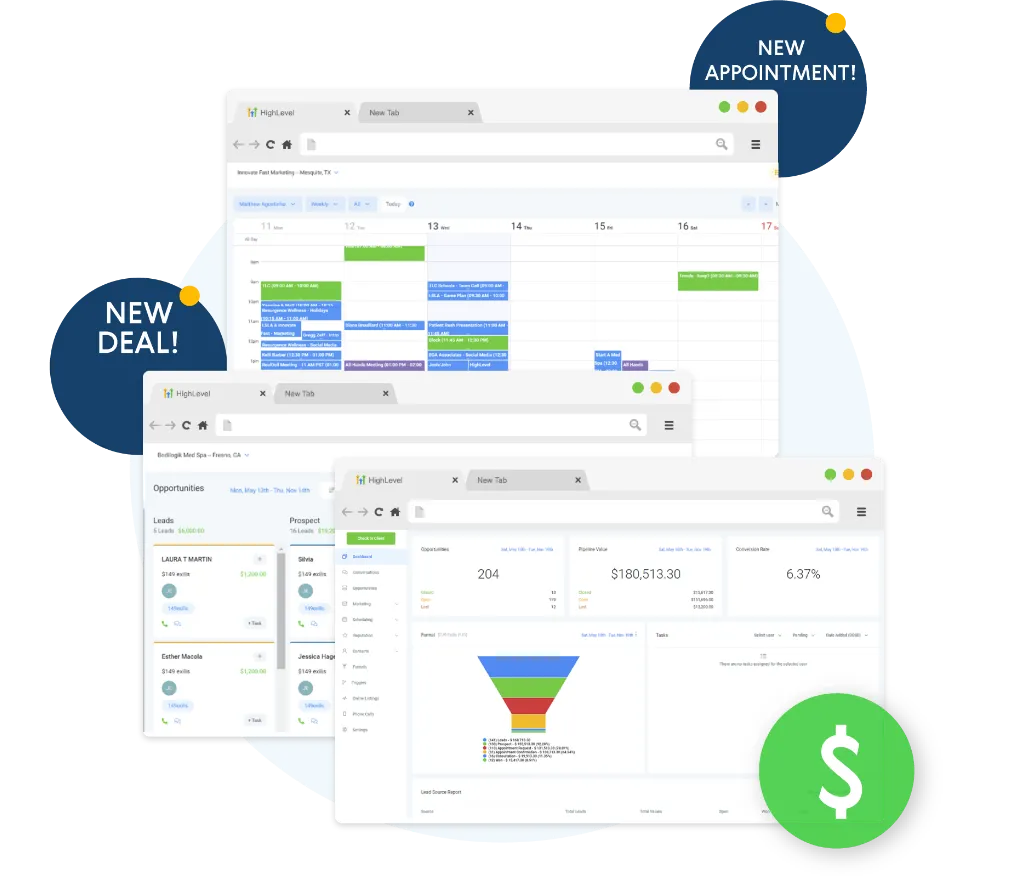We all know how it feels to want cool shoes we see online. Our friends post pictures of their new sneakers, and we worry about missing out. Sometimes our hearts beat faster when we see "Only 2 pairs left!" or "Sale ends soon!" Many of us spend lots of money on shoes we don't need. We buy them because they make us feel good for a short time. We want to fit in with others and show off nice things. But if we know why we feel this way, we can make better choices about what we buy. We can ask ourselves if we really need new shoes or if we just want them because others have them.
The Psychology Behind FOMO
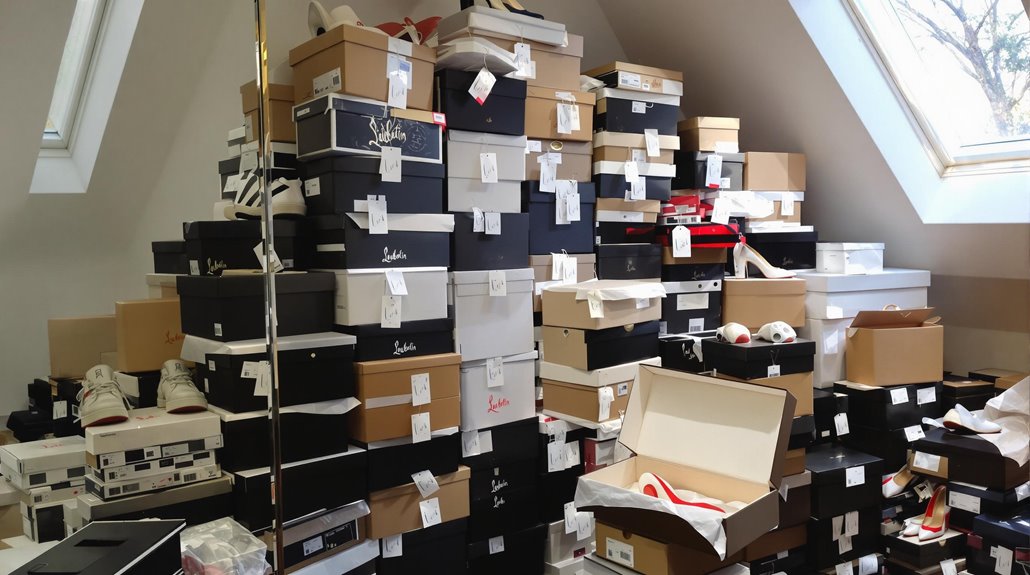
FOMO makes us worry about missing out on fun times with friends. When we feel left out, our bodies get nervous and stressed – just like how we feel when we're scared. This can make it hard to think clearly.
We all want to fit in and feel close to others. When we see friends doing fun things without us, it makes us feel bad. When we see people with new things, like cool shoes, we want them too. This is normal. We want to feel like we belong.
Sometimes these feelings make us buy things we don't need. We think new stuff will help us feel more connected to others. But this isn't always true.
Social Media's Influence on Shopping
Social media makes us want to buy things we see online. When we look at Instagram or TikTok, we often feel like we need what others have. Many of us look up brands on social sites first. We see friends and people we like showing off new things. This makes us want to buy them too.
Young people buy even more from what they see on social media. They often buy things they didn't plan to get. This happens when they watch videos of people they trust using products.
Social media makes it very easy to buy right away. They show deals that end soon to make us want to buy fast.
Why Shoes Trigger FOMO
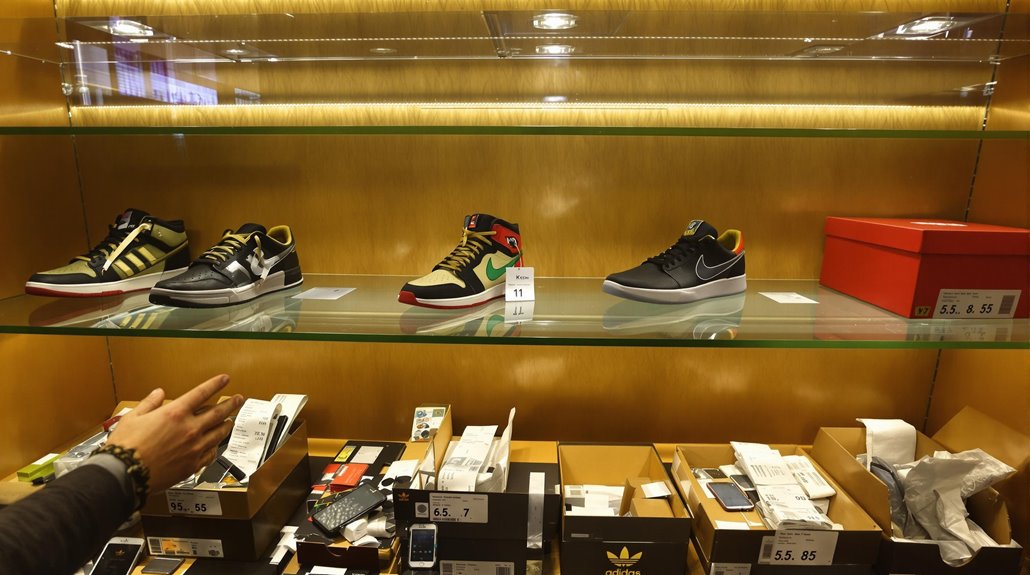
We often want new shoes because they make us feel like we're part of something special. When shoe companies make only a few pairs, we worry we might miss out. It's like when your friend gets the last cookie – you wish you had one too!
Big stars wear cool shoes and show them off. This makes us want the same shoes. We see people wearing them on Instagram and TikTok. Then we start to think we need them too.
| What Happens | How We Feel | What We Do |
|---|---|---|
| Few Shoes Left | Need to Rush | Buy Right Away |
| Famous People Wear Them | Want Them Too | Copy Others |
| New Styles Come Out | Feel Left Out | Buy Fast |
| Fear of Missing Out | Feel Worried | Buy Without Thinking |
Our minds tell us we might feel bad if we don't get the shoes now. When we see friends with new shoes, we want to buy them too – even if we have lots of shoes at home. It feels like we might miss something good if we don't buy them right away.
Understanding Impulsive Shoe Purchases
We all buy shoes without thinking sometimes.
It happens when our feelings take over. Maybe we feel happy or excited, an
The Digital Shopping Revolution
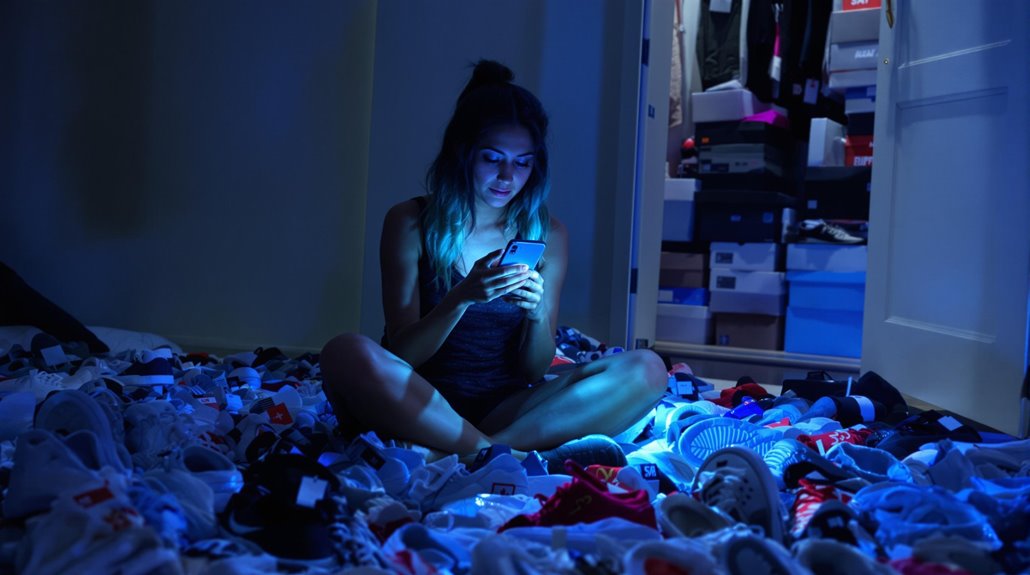
Shopping has changed a lot since we got the internet. These days, we can buy things right from our phones and computers instead of going to stores. Over 2 billion people around the world shop online now. If you live in America, you're like most people – 8 out of 10 of us buy stuff on the internet.
Many of us use our phones to shop. It's like having a big store in your pocket. We can look at shoes, clothes, and other things we want to buy at any time.
People in the US spend about $5,000 each year on online shopping. In a few years, we might spend even more – maybe $7,000 each year.
More and more people are also buying things they see on social media. This new way of shopping is growing fast and is changing how we get the things we need and want.
Limited Edition Sneaker Culture
Sneaker fans get excited when special shoes come out. They worry they mightn't get these rare shoes before they sell out. This makes them want the shoes even more.
Right now, people resell these special shoes for $2 billion each year. By 2030, that number could grow to $30 billion.
Air Jordan and Nike make the most popular rare shoes. They sell seven out of every ten special shoes.
When people resell these shoes, Air Jordans often cost 54% more than the store price. Nike shoes cost 46% more.
Young people who buy and sell these shoes know they're special. They see these rare shoes as cool things to wear and as ways to make money.
Having rare sneakers makes people feel like they're part of a special group.
Hype Drives Impulse Buying
Sneaker brands know how to get us excited about new shoes. When they release special shoes that won't be around for long, many of us rush to buy them fast.
We see our favorite stars wearing these shoes. We watch as other people post about them online. This makes us want them even more.
The brands use simple tricks to make us buy:
- They show how much time is left to buy
- They show famous people wearing the shoes
- They tell us when shoes are almost gone
- They send alerts about the last pairs left
Young people often buy these shoes without planning to. Many buy shoes they never put on their feet. They just want to feel like they're part of the cool sneaker crowd.
Social Status Through Sneakers
Sneakers are more than just shoes today. When people buy special sneakers, they want to show they're cool and successful. Just like some people buy fancy cars or watches, others collect rare sneakers.
The sneaker resale market is growing fast. By 2030, people will spend $30 billion buying and selling rare sneakers. That's a lot of money for shoes!
Nike and Air Jordan are the biggest names in sneakers. Most people want these brands the most. Air Jordan shoes often sell for much more than their store price. Some sneaker fans never wear their shoes. They keep them like art in boxes.
Even fancy fashion brands now make sneakers. They saw how much people love special shoes. What used to be simple street shoes are now seen as high-end fashion items.
Marketing Tactics That Drive FOMO
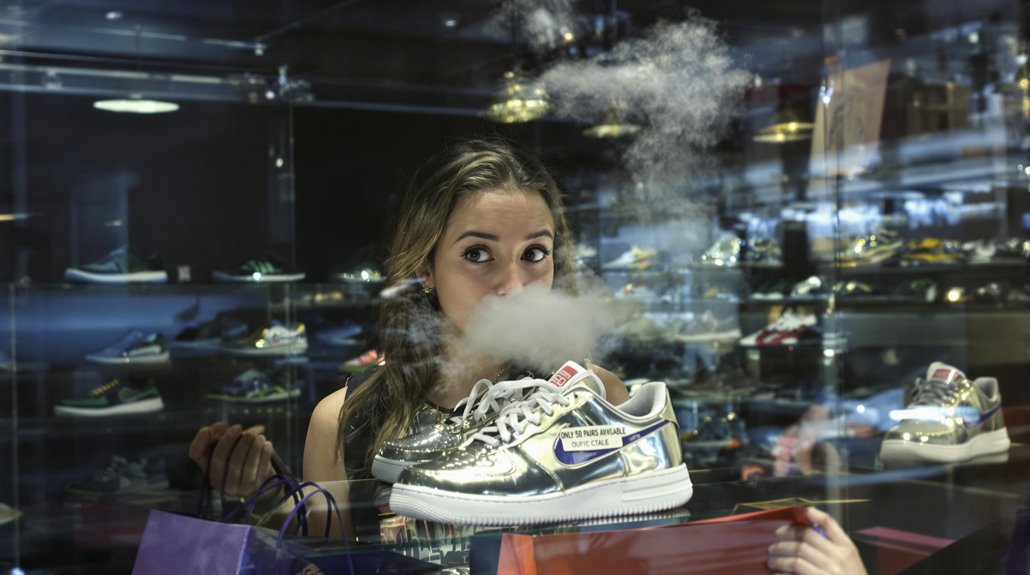
We often want shoes even more when they might run out soon. Our minds push us to buy quickly because we don't want to miss a good deal.
When we see other people buying and loving the shoes we want, it makes us feel better about buying them too.
And when stores only let some people buy special shoes first, it makes us want those shoes even more. We feel like we need to act fast or we mightn't get them at all.
Sick of wasting hours on marketing that doesn’t pay off?
What if you could skip the hard work and still grow your business?
Automate your marketing and see how easy it can be to save time and close more deals.
Discover the simplest way to take charge of your business!
Limited-Time Deals Psychology
When stores put up "Buy Now!" signs, they want us to act fast without thinking too much. It's like when you see shoes on sale for just one day. Your heart starts racing, and you want to grab them right away!
Think of it like this:
- When something is only there for a short time, we think it's more special
- When there's not much left of something, we worry we'll miss out
- When we feel like we're part of a special group, we want to buy faster
- Quick sales make us rush and buy with our feelings, not our head
These tricks make it hard to stop and think. Our brain gets worried about losing out on something good. That's why we might buy shoes we don't really need, just because the sale is ending soon.
The signs and limits tap into how we feel deep down. It's like when you see the last cookie in the jar – you want to grab it fast!
Stores know this about us and use it to make us shop more.
Social Proof Strategies
Stores want to show you what other happy shoppers think. When people see good reviews, they want to buy too. Almost all of us look at what others say before we buy shoes.
When you look at shoes online, you might see little pop-ups. These show you when other people buy shoes right now. You also see photos on places like Instagram, where real people show off their new shoes.
When lots of people say nice things about shoes you want, it makes you want them more. Before buying shoes, most of us want to know if other people like them.
It feels safer to buy something when we see others are happy with it too. Looking at reviews helps us feel sure about what we want to buy.
Exclusive Access Marketing
We all get excited about special shoes. When stores only sell a few pairs, it makes us want them even more. Many of us worry we might miss out on something cool.
You can get special shoes first if you join a store's club. This makes people feel special. When you see a timer counting down, you want to buy fast. When you see "only 5 left," you might grab them quick.
Being part of a special group that gets shoes first feels good. Quick sales and special deals make us want to buy right away. We often buy because it feels good, not because we need the shoes.
These stores know how to make simple shoes feel very special. They make us feel like we must buy now or we'll be sad later. It works because we all want to be part of something special.
Breaking The Shopping Cycle
Shopping too much can be hard to stop, but you can do it! First, turn off those shoe websites and emails that make you want to buy more shoes.
Use cash when you shop. This helps you see how much money you spend. When you want to buy shoes, try doing something else instead. You could take deep breaths or go for a walk.
Tell your friends about your goal. They can help you stay on track. Keep track of what you spend in a notebook or on your phone.
Wait a few days before you buy any shoes. Think about why you want to buy them.
Over time, you'll learn new ways to feel good without buying things you don't need.
Emotional Spending and Regret
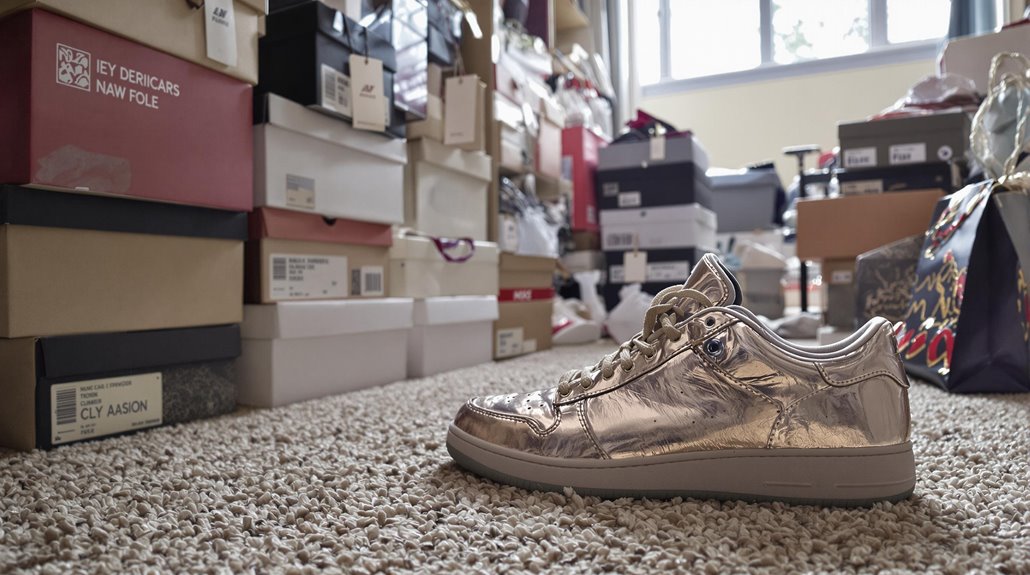
We all feel things strongly when we spend money. You might want to buy things when you're sad or happy.
Maybe you see cool shoes online and click "buy" right away. It feels good for a short time, but then you might feel bad later.
When we see friends with new things on social media, we want to buy stuff too. When we feel stress or worry, buying things can help us feel better for a bit.
Sometimes when we feel alone, shopping makes us feel less lonely.
But after we buy things we don't need, we often feel sorry. The good feeling goes away fast.
To stop buying things when your feelings are strong:
- Know what makes you want to buy
- Find other ways to feel better
- Wait one day before buying things you don't need
These simple steps can help you make smart choices with your money and feel better about what you buy.
Social Pressure in Fashion
Many people feel pushed to buy new clothes from what they see on social media. When we scroll through Instagram or TikTok, we see friends and famous people showing off their new shoes and clothes. They make it easy to buy what they wear with quick links.
It's normal to worry about fitting in. We want to wear what others are wearing. This feeling is stronger when we care a lot about being part of a group.
Big fashion companies know this. They use quick sales and "last chance" deals to make us feel we need to buy now.
It's like a big circle – we see new things, want to fit in, and buy more clothes. This happens over and over.
But remember, you don't have to buy everything you see to be liked by others.
The Cost of Keeping Up
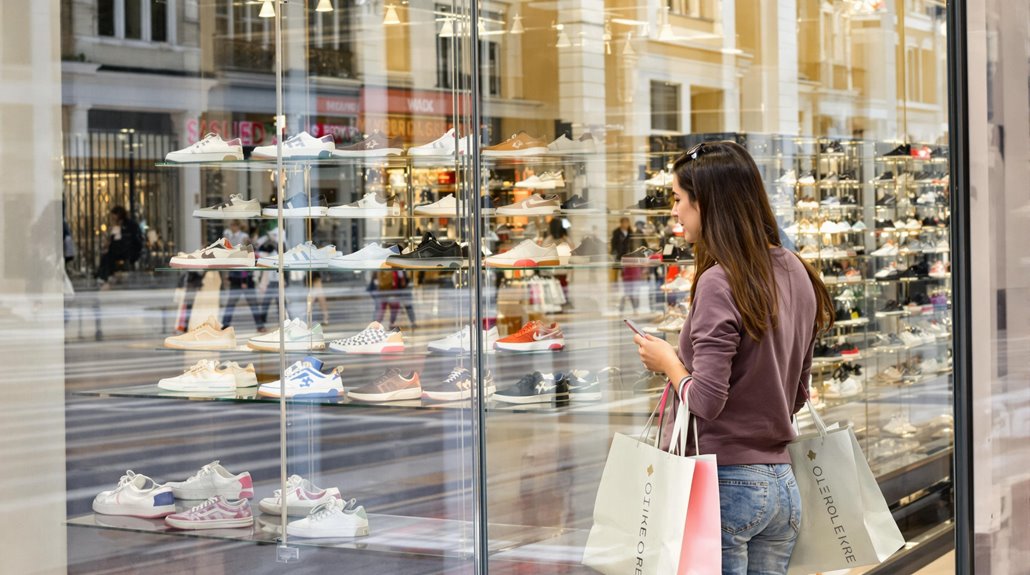
We all want cool new shoes. But trying to buy every new style can hurt our money. Many of us spend $500 or more each month on shoes we can't really pay for.
Stores spend lots of money on ads to make us want to buy right away. They know how to make us feel like we need the newest styles.
Many people use up to 5% of the money they make each month just on shoes. This money could help pay bills or go into savings instead.
Financial Strain From FOMO
Many people spend too much money trying to fit in with friends. They buy things they can't afford because they worry about missing out on fun times. This is a big problem.
7 out of 10 young people spend money they don't have. Almost half end up in debt just to do what their friends are doing. Most live from one paycheck to the next. Many can't pay their bills on time.
Here's what people spend on:
- Going to shows and events
- Meeting up with friends
- Being part of group activities
- Joining in social plans
Most people make money choices based on what they see others doing. Looking at social media makes them want to spend more. But talking to family and friends often helps them make better money choices.
Remember: It's okay to say no to spending money you don't have. True friends will understand.
Social Pressure Creates Debt
Many young people today feel they must spend money to fit in with friends. Apps like Instagram and Facebook show them fun things their friends are buying and doing. This makes them want to spend money they don't have.
The numbers tell a sad story. Young people aged 18-24 are getting deep into debt. Many can't pay their bills on time. This happens most when they start their first jobs and don't make much money.
While older folks are paying off what they owe, young people keep adding debt. Every time they see friends posting about new stuff online, they feel pushed to buy more.
This hurts their money plans for the future.
Shopping Beyond Your Means
It's easy to spend too much when you see friends buying lots of stuff. You might feel bad when you watch people show off their shopping on social media. Many young people even go into debt trying to buy what their friends have. Most people don't even have $500 saved for when they need it.
Why we spend too much:
- We see cool things on Instagram and TikTok and feel we must buy them right away.
- We add extra things to our cart just to get free shipping.
- Many of us shop online every week.
- Looking at what others buy makes us want more than we can afford.
Shopping is now very simple. We can buy things from our phones, computers, and in stores. This makes it hard to stop spending money we don't have.
Mindful Shopping Practices
Shopping mindfully helps us avoid buying things we don't need. When we see lots of ads for shoes or feel like we must buy what others have, we can stay strong.
Make a list of shoes you really need. Look for brands that make shoes in a good way.
Set a money limit and pick special days to shop. This helps you think before you buy. Many other people shop this way too! They care about buying less but better things.
Try not to buy anything new for 30 days. Or pick just a few items to wear for three months. These fun tasks can help you shop better.
When you buy from small shoe stores in your town, you help your neighbors. You also get shoes that make you happy for a long time, not just for a day.
When Scarcity Drives Desire
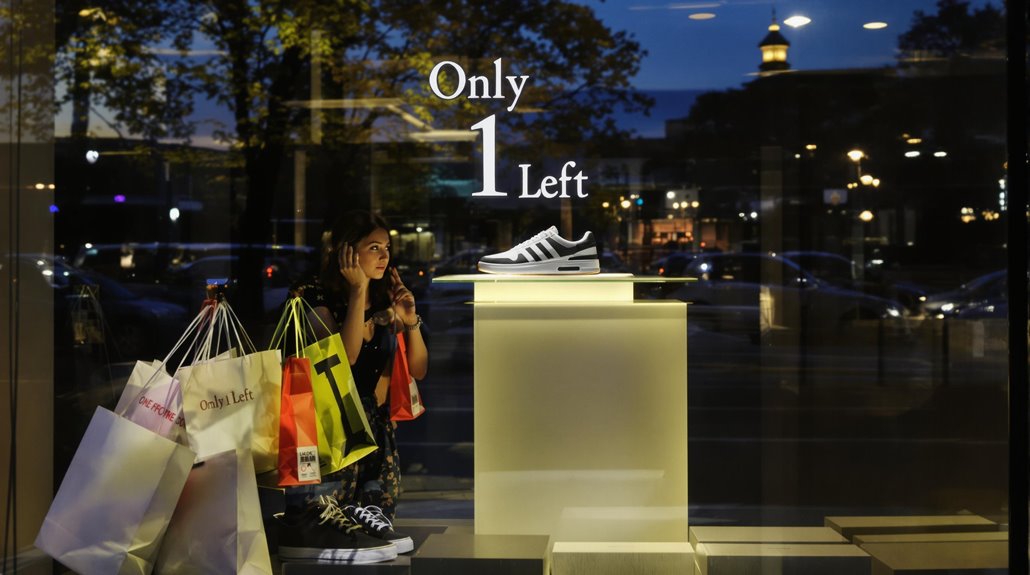
Rare shoes make us want them more. Think about the last time you really wanted something because there wasn't much of it left. When stores only have a few special shoes, we feel we must get them fast.
When brands make just a few pairs of cool shoes, it makes us feel special to own them. We like being part of a small group who's these rare items.
Quick sales make us buy faster:
- We worry about missing out
- We want to join other cool shoe owners
- We rush to buy when time is short
- We want shoes that others want too
Young people who use social media often buy fast when they see others want the same shoes. When something is hard to get, we think it's worth more money.
This text is shorter and uses simple words. It speaks to people directly and makes the ideas easy to grasp. Each line is clear and avoids big words.
Brand Obsession and Identity
Lots of people love shoes and feel they need special brands to fit in.
Think about shoes like making friends – you can enjoy them in a good way or worry too much about having them. Many young adults spend more money than they've just to get new shoes like their friends.
Looking at phones and computers makes us want shoes even more. When we see cool people wearing new shoes on apps like Instagram, we feel we need them right now.
Shoe companies know this. They make us feel like we must buy their shoes fast or we'll miss out. They want us to think these shoes will make our friends like us more.
Beyond The Shopping High
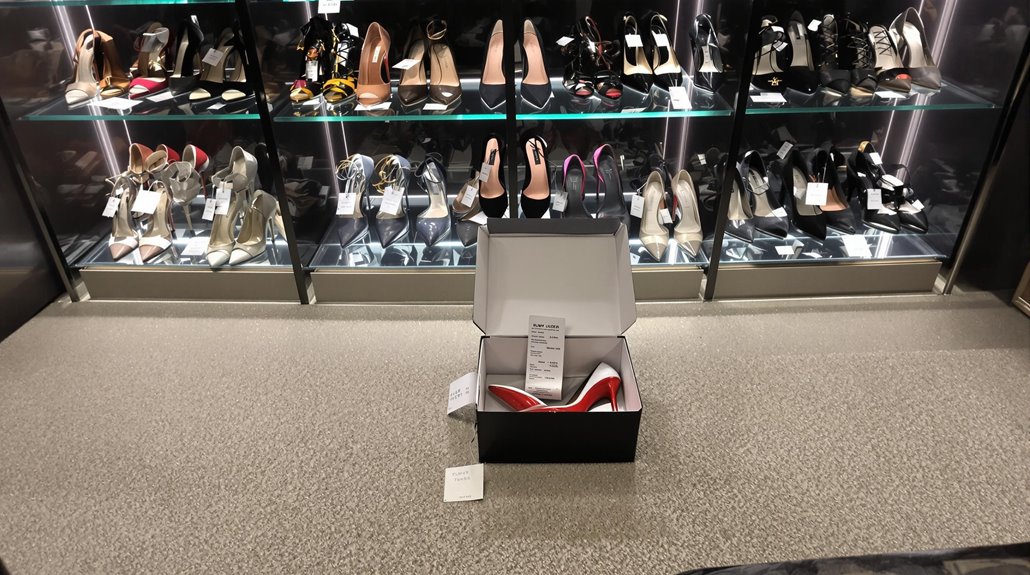
Shopping for shoes can make us feel really happy at first.
But that happy feeling goes away fast. Then we might feel sad or empty inside. We keep buying more shoes to feel good again, like a friend who always needs one more cookie.
But new shoes don't fix what's making us feel bad inside. Soon we want to buy even more shoes. This can become a habit that's hard to break.
Post-Purchase Reality Check
Buying new shoes can make us feel happy at first. But later, we might worry if we made a good choice. This happens to many people after they buy something big.
Sometimes our new shoes don't feel as good as we thought they would. We might see our friends give us funny looks. Or maybe the shoes hurt our feet more than we expected.
Why does this happen?
- We see pretty ads that make shoes look perfect
- When shoes cost a lot, we worry more about our choice
- Some of us have a harder time feeling sure about what we buy
- We think we'll wear the shoes more than we do
When we know why we feel this way, it helps us make better choices next time. It also helps us feel better about the shoes we buy.
Empty Shopping Void
Shopping can make you feel good for a short time. But the happy feeling doesn't last long. Many people shop too much when they feel sad or empty inside.
When we feel bad, we might want to buy new things. We think new stuff will make us happy. But buying things doesn't fix our real feelings. It's like putting a band-aid on a big cut – it helps for a minute but doesn't heal the wound.
Stores know this and try to make us feel like we need to buy right away. They say things like "Don't miss out!" or "Buy now!" to make us worry.
The real answer isn't in buying more stuff. It's in learning why we feel empty and finding better ways to feel better. This means talking about our feelings instead of shopping them away.
Conclusion
When you look at social media, you might see cool new shoes that your friends want to buy. Many people feel they need to buy these shoes fast, or they'll miss out. They worry others will get the shoes first. But here's the funny part – most of these shoes just sit in closets and never get worn. Want to stop buying shoes you don't need? Try this: When you want new shoes, wait one day before buying them. Think about if you'll really wear them. This helps many people save money and only buy shoes they love and use.

